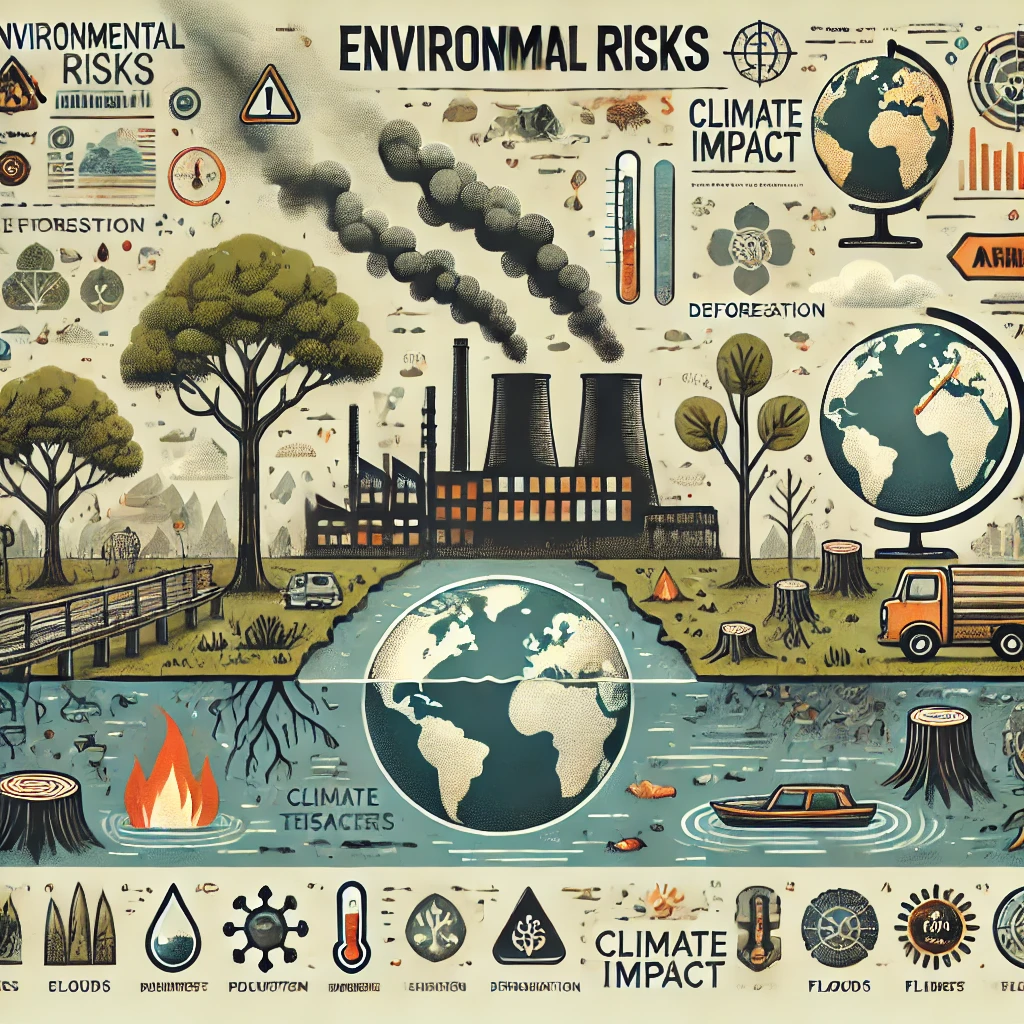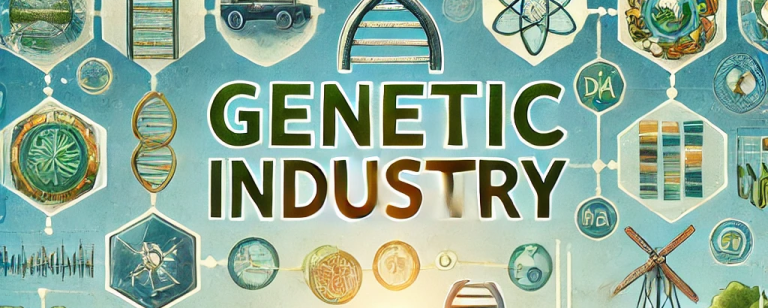MD: Understand about the genetic industry, its definition, and significance in the economy. Learn how it drives innovation and growth. Check now for detailed insights!The genetic industry is said to be the sector related to the development, cultivating, and enhancing of genetic material to manufacture goods and services. This sector plays an important role in agriculture, biotechnology, and animal husbandry. The main motive of the genetic industry is to develop living organisms based on the scientific method and enhance the quality and productivity of the produced goods by selective breeding, genetic modification, and hybridization. From improving crop yields to developing disease-resistant plants and animals, the genetic industry is a cornerstone of modern agricultural and biological advancements. This article goes on to define, enumerate, and discuss the components of the genetic industry, its significance, and the challenges that face it.
What is Genetic Industry?
The genetic industry deals with the cultivation, growth, and modification of living organisms to enhance their genetic traits for commercial and practical applications. It does not deplete natural resources as is the case in extractive industries; it instead focuses on sustainability through improving genetic materials for long-term benefits. As it progresses with biotechnology, it contributes toward agriculture, healthcare, and environmental conservation, thereby nurturing innovation and resource renewal.
Key Features
- Cultivation: Focuses on breeding plants and animals to meet commercial demands.
- Sustainability: Encourages the replenishment of resources to ensure long-term productivity.
- Innovation: Utilizes biotechnology and genetic engineering to improve the quality of genetic materials.
Examples of Genetic Industry
This sector bridges the gap between natural resources and scientific innovation, enabling industries to meet global demands efficiently.
- Agriculture: Producing hybrid crops with higher yields and disease resistance.
- Animal Husbandry: Breeding livestock for improved milk or meat production.
- Biotechnology: Developing genetically modified organisms (GMOs) for medicinal and industrial purposes.
Types of Genetic Industry Activities
The genetic industry involves a whole range of activities, each aimed at improving genetic resources to serve various needs of different sectors. It can be used in agriculture in the form of genetically modified organisms, in medicine with genetic engineering, and conservation genetics for biodiversity. Applying cutting-edge technology, the genetic industry addresses critical challenges, thus spurring innovation and sustainability in applications.
Plant Breeding
Plant breeding focuses on developing new plant varieties with desirable traits like higher productivity, pest resistance, and climate adaptability.
- Hybrid Crops: Creating crops like hybrid rice and wheat that yield better under specific conditions.
- Genetically Modified Crops (GMOs): Altering plant DNA to make them resistant to pests and herbicides (e.g., Bt cotton).
- Tissue Culture: Using plant cells to propagate new plants with identical genetic makeup.
Animal Breeding
Animal breeding enhances livestock traits to improve productivity and meet the growing demands for animal-based products.
- Dairy Farming: Breeding cows and buffaloes for higher milk production.
- Poultry Farming: Producing breeds that grow faster and have better disease resistance.
- Aquaculture: Cultivating genetically enhanced fish and shellfish for higher yields.
Microbial Applications
Microorganisms are an integral part of the genetic industry due to their vast applications in agriculture, medicine, and food production.
- Biofertilizers: Developing microbial solutions to enhance soil fertility.
- Probiotics: Cultivating beneficial bacteria for human and animal health.
- Enzyme Production: Engineering microbes for industrial applications like brewing and pharmaceuticals.
The activities within the genetic industry are interconnected, and advancements in one area often benefit others, driving innovation across the board.
Importance of the Genetic Industry
The genetic industry has been an important driver in economic and social development, using biotechnology breakthroughs to solve global challenges. From agriculture to environmental sustainability, and from food safety and security to healthcare improvement, the applications of this industry are diverse. Innovation is being driven by this industry to shape a healthier and more sustainable future.
Agricultural Advancements
- Food Security: By developing high-yielding crops, the genetic industry addresses food shortages and ensures global food supply.
- Climate Resilience: Genetic engineering enables the development of crops that can withstand extreme weather conditions, ensuring stable yields.
- Pest and Disease Resistance: Reducing dependency on chemical pesticides through genetically resistant plant varieties.
Economic Contributions
- Job Creation: The genetic industry creates employment opportunities in agriculture, biotechnology, and research.
- Export Potential: High-quality crops and livestock bred through genetic advancements contribute to export revenues.
- Cost Efficiency: Reduced input costs in farming due to efficient genetic practices lead to increased profitability for farmers.
Healthcare Innovations
- Medicinal GMOs: Developing genetically modified organisms for producing vaccines and medicines.
- Nutritional Enhancement: Creating biofortified crops, like golden rice, enriched with essential nutrients to combat malnutrition.
- Gene Therapy: Using genetic techniques to treat inherited diseases.
The genetic industry’s contributions are not limited to economic benefits; they extend to improving quality of life and ensuring sustainability for future generations.
Challenges Faced by the Genetic Industry
Despite its numerous benefits, the genetic industry has challenges such as high research and development costs, ethical concerns, and regulatory hurdles. Low public awareness and skepticism about the advancements of genetics further hamper widespread adoption. Other barriers to growth and acceptance include data privacy, accessibility, and equitable distribution of benefits.
Ethical Concerns
- GMOs and Public Perception: Genetically modified organisms often face public skepticism due to concerns about safety and environmental impact.
- Animal Rights: Ethical debates arise around animal genetic modification for commercial purposes.
Regulatory Hurdles
- Strict Guidelines: Governments impose stringent regulations on genetic modification activities, making it difficult for companies to innovate and scale.
- Approval Delays: Lengthy approval processes for new products hinder the pace of development.
Economic Barriers
- High Costs: Research and development in the genetic industry require significant investment, making it inaccessible to small-scale farmers and businesses.
- Market Inequality: Larger corporations dominate the industry, leaving smaller players at a disadvantage.
Environmental Risks
Addressing these challenges requires collaboration among scientists, policymakers, and stakeholders to ensure the genetic industry evolves responsibly.

- Biodiversity Loss: Over-reliance on genetically modified crops can reduce genetic diversity in the ecosystem.
- Unintended Consequences: The long-term effects of genetic modifications on ecosystems remain uncertain.
Conclusion
The genetic industry is an important sector that combines scientific innovation with economic growth. It plays a crucial role in enhancing agricultural productivity, supporting food security, and driving advancements in medicine and biotechnology. By overcoming challenges like ethical concerns and regulatory hurdles, the genetic industry can continue to revolutionize how we use natural resources sustainably. As the demand for efficient and eco-friendly solutions grows, contributions by the genetic industry will play an increasingly vital role in shaping a sustainable future.
Genetic Industry FAQs
What is the genetic industry?
The genetic industry involves cultivating and manipulating genetic materials to improve plants, animals, and microorganisms for commercial and sustainable purposes.
What are examples of genetic industry applications?
Examples include hybrid crops, genetically modified organisms (GMOs), dairy farming for higher milk yields, and biofertilizers.
Why is the genetic industry important in agriculture?
The genetic industry enhances crop yields, creates pest-resistant varieties, and develops climate-resilient plants, ensuring food security and sustainability.
What are the ethical concerns related to the genetic industry?
Concerns include the safety of GMOs, animal welfare in genetic modification, and the potential environmental impact of reduced biodiversity.
How does the genetic industry impact healthcare?
The industry supports healthcare by creating medicinal GMOs, developing gene therapy techniques, and producing biofortified crops to combat malnutrition.


